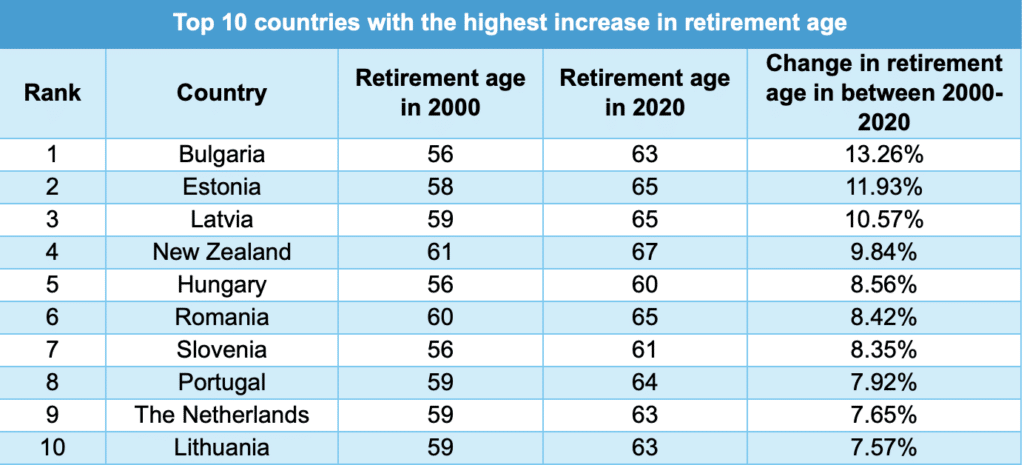A recent study conducted by AgeCalculator.com delves into the shifts in retirement age across various countries over the last quarter-century, utilising OECD data spanning from 2000 to 2020. The analysis unveils notable trends, pinpointing which nations have experienced the most substantial increases in retirement age.
Bulgaria emerges at the forefront of this trend, boasting a significant 13.26% surge in its average retirement age between 2000 and 2020. During this period, the retirement age climbed from 56 to 63 years old, reflecting a marked shift.
Following closely behind, Estonia and Latvia claim the second and third positions, respectively, with increases of 11.93% and 10.57%. Notably, both countries witnessed their retirement age rise from 58 and 59 in 2000 to 65 in 2020.
New Zealand stands out as the sole non-European nation in the top echelons, securing the fourth position with a notable 9.84% increase in retirement age. The data showcases a substantial leap from 61 to 67 years old over the same period.
Hungary and Romania trail behind in the fifth and sixth spots, each experiencing significant upticks of 8.56% and 8.42% in retirement age, respectively. Slovenia follows suit in seventh place with an 8.35% increase.
Portugal, The Netherlands, and Lithuania round up the top ten, each displaying noteworthy rises in retirement age.

Reflecting on these findings, a spokesperson from AgeCalculator.com underscores the multifaceted nature of this phenomenon. Factors such as increased life expectancy, economic pressures, and shifting demographics play pivotal roles in driving these changes. Notably, the data reveals a predominant focus on European countries, particularly in Eastern Europe, with Portugal representing the first Western European nation in the rankings.
The study sheds light on a global trend wherein retirement ages are steadily on the rise, reflecting the evolving dynamics of modern societies and their respective challenges and opportunities.





